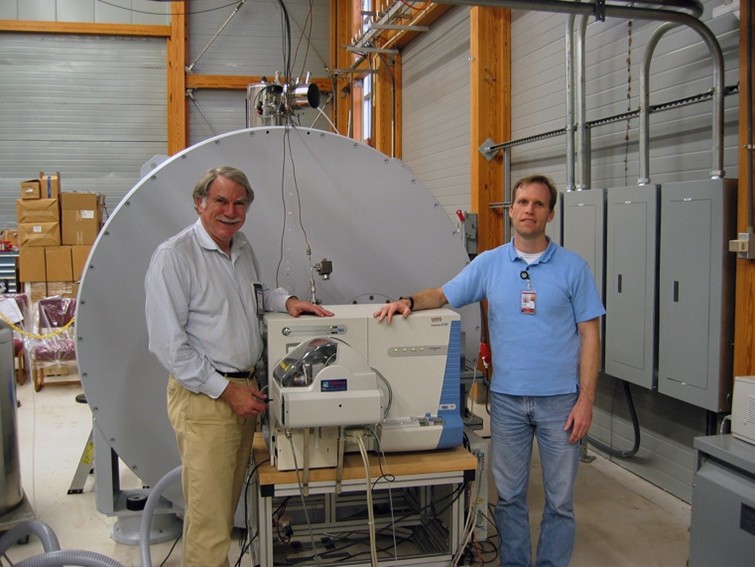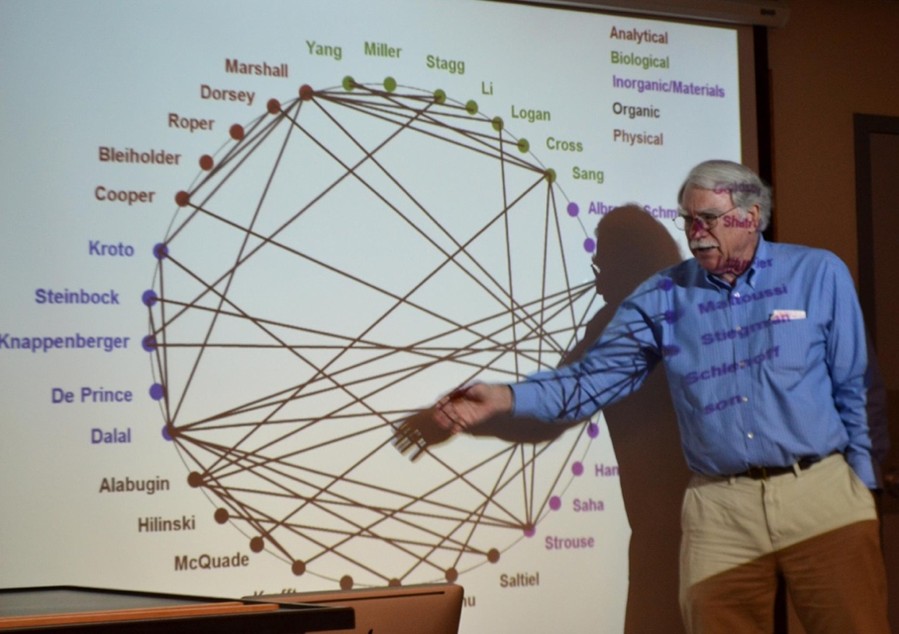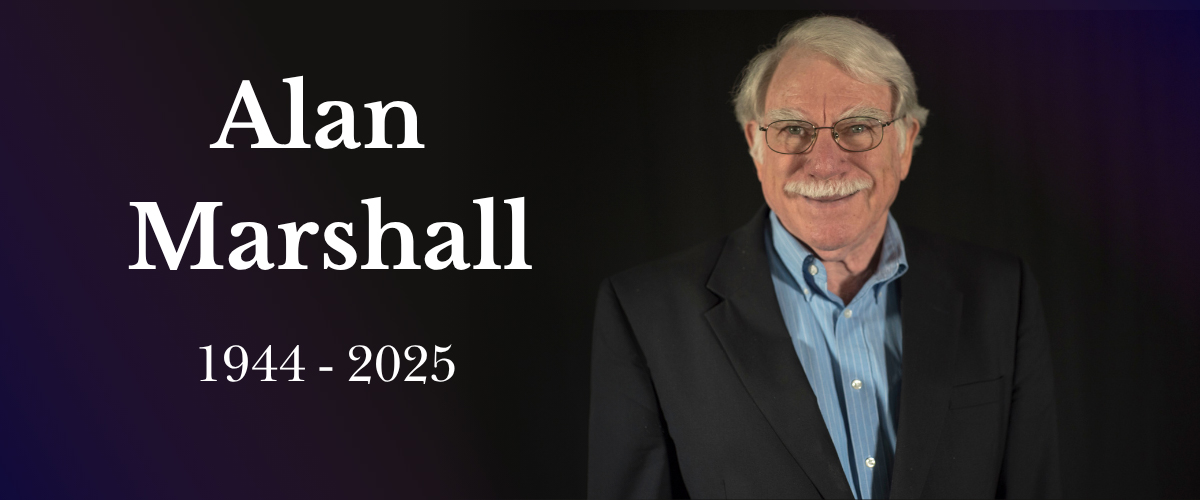TALLAHASSEE, Fla. — Tributes have poured in from scientists around the world for Alan Marshall, a pioneer in analytical chemistry and mass spectrometry who founded and built the National High Magnetic Field Laboratory’s groundbreaking facility for Fourier Transform Ion Cyclotron Resonance after co-inventing the technique. Marshall died June 6 of natural causes at age 81.
Marshall retired in 2024 as Chief Scientist of the MagLab's FT-ICR facility, which he lead from 1993 until 2014. He was also Robert O. Lawton Professor of Chemistry and Biochemistry at Florida State University.
"We've lost a giant," said MagLab Director Kathleen Amm. "I am profoundly grateful for Dr. Marshall's scientific contributions and look forward to seeing his impressive legacy live on in the decades to come in the ICR faculty, its users, and its groundbreaking research."
Marshall, who earned a chemistry degree at Northwestern and his Ph.D. at Stanford, taught and researched at the University of British Columbia and Ohio State University before coming to Florida State University in 1993.

Alan Marshall (left) along with Chris Hendrickson in front of an FT-ICR magnet system in 2008.
The FT-ICR facility he founded at the National MagLab continues to set records for magnetic field strength, mass accuracy, and resolution. Research areas include petroleum, biofuels, forever chemicals, microplastics, ocean carbon cycles, and even meteorites and moon dust. Since its origin, the FT-ICR facility has hosted more than 3,300 researchers from around the world, resulting in more than 720 peer-reviewed publications. Marshall himself mentored more than 150 doctoral and postdoctoral students.
“He was a treasured mentor to hundreds of students and postdocs throughout his 55-year career,” said Chris Hendrickson, Kristina Hakansson, and Ryan Rodgers in a joint statement. The three leaders of the MagLab’s FT-ICR program were all mentored by Marshall. “His legacy lives on through the science performed every day by his scientific progeny,” they said.
In 1973, Marshall and a fellow professor invented Fourier Transform Ion Cyclotron Resonance, FT-ICR, allowing analysis of complex chemical mixtures such as petroleum as never before, sorting and pinpointing molecules that other methods cannot detect.
The first commercial FT-ICR system was developed in the late 1970s. Today, more than 850 FT-ICR mass spectrometers are in use, everywhere from academic institutions to oil companies to the pharmaceutical industry.

Alan Marshall conducting a talk in 2016.
Marshall was a Fellow of the American Academy of Arts & Sciences, won dozens of awards and honors, and was inducted into the Florida Inventors Hall of Fame. He attracted tens of millions of dollars in research funding to the MagLab and Florida State University. His research has been cited an astounding 60,000 times.
He was known for his passion and love of the job, famously coming to work seven days a week his entire career.
"The two main things that have guided me,” Marshall said in 2023 while marking the 50th anniversary of FT-ICR, “Have broad scientific interest, because you never know where the next idea is coming from. And collaboration-- I expect all the students and postdocs to work with outside users, because I figure it broadens their outlook. Maybe they make a friend, maybe that person writes a letter, maybe they hire them."
Marshall saw the friends he made and the people he guided as his greatest legacy.
"The students are the big joy. Watching them come along has been a real treat," Marshall said, noting that five students even named their sons after him.
"It's fun to see them succeed," he said, "It's like family."
Marshall has two children and four grandchildren. His wife of 54 years, Marilyn J. Marshall, died in 2021.



